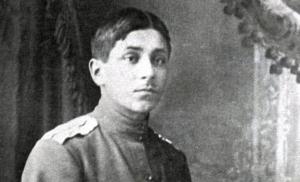Common repetitive action The Simple Present Tense in English (The Present Simple (Indefinite) Tense)
Used: to express a common, regularly repeated action.
Formed: from the infinitive of the semantic verb (without to); in the 3rd l. units numbers ending -s(verbs to have And to be have special conjugation forms).
do (does):
Doesn't read much.
Does he read much?
He doesn't read much.
Continuous
Used: to express an action taking place at the moment, at the moment of speech.
Formed: from an auxiliary verb to be present participle of the semantic verb (participle I) .
In interrogative is placed before the subject.
In negative - particle not placed after the auxiliary. verb.
Not reading.
Is he reading?
He is not reading.
Perfect
Used: to express a completed (or still ongoing) action, the result of which is connected with the present.
Formed: from an auxiliary verb have (has) past participle of the semantic verb (participle II).
In interrogative
In negative - particle not is placed after the auxiliary verb.
Has not already come.
Has he come?
He has not come yet.
Perfect-Continuous (perfect-continuous)
Used: to express an action that began in the past and continues in the present.
Formed: from an auxiliary verb to be in the form Present Perfect (have been; has been)
In interrogative auxiliary verb in sentences have or has is placed before the subject.
In negative - particle not is placed after the first auxiliary verb.
Has not been working here for 5 years.
Has he been working here for 5 years?
He has not been working here for 5 years?
Past (past)
Simple (Indefinite)
Used: to express an action that happened in the past.
By method of education Past Simple English verbs are divided into standard and non-standard.
Interrogatives and negatives sentences are formed using an auxiliary verb do in the form (did):
Didn't come yesterday.
Did he come yesterday?
He didn't come yesterday.
Continuous
Used: to express an action that took place at a certain point in time in the past.
Formed: Past Simple (was, were) participle I of the semantic verb.
Interrogatives and negatives Present Continuous:
Wasn't reading when they came.
Was he reading when they came?
he was not reading when they came.
Perfect
Used: to express an action that ended before another action or a specific moment in the past.
Formed: from an auxiliary verb have in the form Past Simple (had) participle of the second semantic verb.
Interrogatives and negatives sentences are formed in the same way as in Present Perfect:
Didn't have finished his work by 6 o'clock.
Had he finished his work by 6 o’clock?
He had not finished his work by 6 o’clock.
Used: to express an action that began at a certain moment in the past and continued for some time before the beginning of another action.
Formed: from the auxiliary verb to be in the form Past Perfect (had been) participle I of the semantic verb.
Interrogatives and negatives sentences are formed in the same way as in Present Perfect Continuous:
Didn't have been working here for 5 years when the war broke out.
Future
Simple (Indefinite)
Used: to express an action that will happen in the future.
Formed: from auxiliary verbs shall(for 1st person singular and plural) and will(for other persons and numbers).
In interrogative auxiliary verb in sentences shall And will is placed before the subject.
In negative - The particle not is placed after the auxiliary verb.
Will not come tomorrow.
Will he come tomorrow?
He will not come tomorrow.
Continuous
Used: to express an action that will occur at a certain point in time in the future.
Formed: from auxiliary verbs shall or will, which are placed before the auxiliary verb to be (without to) Participle I of the semantic verb.
In interrogative In sentences, the first auxiliary verb comes before the subject.
In negative – not is placed after the first auxiliary verb:
Will not be working here from 10 till 12 tomorrow.
Will he be working here from 10 till 12 tomorrow?
He will not be working here from 10 till 12 tomorrow.
Perfect
Used: to express an action that will be completed by a certain point in time in the future.
Formed: from auxiliary verbs shall or will semantic verb in the form Present Perfect.
In interrogative auxiliary verb in sentences shall or will is placed before the subject.
In negative - particle not is placed after these verbs:
Will not have finished his work by Monday.
Will he have finished his work by Monday?
He will not have finished his work on Monday.
Perfect-Continuous (perfect-continuous)
Used: to express an action which, having begun at a certain moment, will still continue at some point in time in the future.
Formed: from auxiliary verbs shall or will verb to be(in the form present perfect) Participle I of the semantic verb.
Interrogatives and negatives sentences are formed similarly to others Future Tenses:
By the end of the year he will have been working here for 2 years.
When learning English, even the most dedicated beginners have difficulty with tenses. After all, in English in contrast to Russian there are as many as 12 species-temporal forms. Despite this, the system of English tenses is logical, orderly and strictly obeys the laws of grammar.
Learning all the rules for using verbs seems very difficult at first glance. But this is only at first glance. The simplest and effective way master all 12 tenses - use tables that concisely and clearly present material on the formation and use of tenses in the English language.
Why 12?
Everyone knows from school that there are only three tenses in the Russian language - present/past/future. In English there are also three of them - present/past/future, but each tense, depending on the duration of the action, can be of 4 types: simple, continuous, perfect and perfect continuous. As a result, there are 12 temporary forms.
| Simple/Indefinite
An action that occurs “in general” or an action that is repeated over and over day to day. | Continuous/
Progressive An action that occurs at a specific moment, a specific period of time, or an action planned for the near future | Perfect
The completed action with the result is available at the time of speech. | Perfect Continuous
An action that began and lasted until the moment of speech or ended immediately before this moment. |
|
| Present | I walk | I am walking | I have walked | I have been walking |
| Past | I walked | I was walking | I had walked | I had been walking |
| Future | I shall walk | I shall be walking | I shall have walked | I shall have been walking |
Time formation table with examples
| Present | Past | Future | |
| Simple | Rec. verb: do / does Ending: -, -s Formula: V (+s) - I don't play - He doesn't eat | Rec. verb: did Ending: -ed, — Formula: V2 - I didn't play — He didn’t eat | Rec. verb: will/shall Ending: - Formula: will/shall + V - I won't play - He won't eat |
| Continuous | Rec. verb: be (is / am / are) Formula: am/is/are + Ving — I am not playing - He is not eating | Rec. verb: was / were Window: -ing Formula: was/were + Ving — I wasn’t playing - He wasn't eating Was I playing? Was he eating? | Rec. v.: will be / shall be Window: -ing Formula: will/shall + be + Ving I will be playing He will be eating — I won’t be playing - He won't be eating Will I be playing? Will he be eating? |
| Perfect | Rec. v.: have / has Window: -ed Formula: have/has + V3 - I have not played - He has not eaten Have I played? | Rec. verb: had Window: -ed Formula: had + V3 — I had not played — He had not eaten | Rec. v.: will have / shall have Window: -ed Formula: will/shall + have V3 I will have played He will have eaten — I won't have played — He won’t have eaten Will I have played? Will he have eaten? |
| Perfect Continuous | Rec. v.: have been / has been Window: -ing Formula: have/has + been + Ving I have been playing He has been eating — I have not been playing - He hasn't been eating Have I been playing? Has he been eating? | Rec. verb: had been Window: -ing Formula: had been + Ving I had been playing He had been eating — I had not been playing — He had not been eating Had I been playing? Had he been eating? | Rec. v.: will have been / shall have been Window: -ing Formula: will/shall + have been + Ving I will have been playing He will have been eating — I won’t have been playing - He won't have been eating Will I have been playing? Will he have been eating? |
Table of tenses
| Present | Past | Future | |
| Simple | 1) Normal, repetitive action I always do my homework. 2) Laws and natural phenomena, scientific facts The sun rises in the east. 3) Domestic situations Do you want to spend a lot of money here? 4) Stories, anecdotes, reviews, sports commentary Then the knight gets on his black horse and rides away. 5) Train schedules, movie theater schedules The plane from New York arrives at 16:45. | 1) Fact or single completed action in the past The Titanic sank in 1912. I went to Greece five years ago. 2) Past actions that occurred in chronological order. I get up, took a shower, brushed my teeth, got dressed and went out to have coffee. 3) Repeated action in the past I took French courses when I was ten. | 1) Simple action in the future He will read this book. 2) An action that will last in the future for a certain period of time Will you be my best friend? 3) Sequence of actions in the future He will meet me and tell me the situation. 4) Recurring actions in the future She will visit them a few times while she is in Great Britain. 5) Assumptions about the future I'm afraid she won't come today. 6) Decision made at the time of conversation I will have chips, and you? 7) Promises, requests, offers, threats Be quiet, everything will be OK. |
| Continuous | 1) An action taking place at a given moment or period of time I can’t hear what she is talking about now. He is reading a new story by Edgar Allan Poe. 2) Action covering a time period in the present He is studying at the University. 3) Changing situation Is your French getting better now? 4) Any planned action (indicating place and time) They are meeting their friend at 6 at the café. 5) An action that will take place in the near future (with verbs of motion) The family is moving to the other town. 6) Expressing a negative characteristic Ann is always making a noise when I’m reading. | 1) A long-term action that occurred in the past at a certain moment I was playing computer game at 7 o’clock. 2) Two or more long-term actions that occurred simultaneously in the past Mary was playing piano and her little sister was dancing. 3) A long action in the past, interrupted by another (short) action. As she was sleeping, somebody knocked at her door. 4) Description of the setting or atmosphere Sam entered the room. The smell of cigarettes was filling it. 5) Expressing a negative characteristic The dog was constantly playing in the kitchen. | 1) An action that will occur at a certain point in the future: This time next Monday I shall be flying to Tahiti. 2) An action that will certainly occur in the future Jhon won’t be meeting you tomorrow, because he is ill. 3) A polite question about the interlocutor’s plans for the near future, in particular when we need this person to do something for us Will you be reading the magazine for long? My friend needs it urgently. |
| Perfect | 1) An action completely completed in the past, the result of which has a connection with the present They have bought a new TVset, so they may sell the old one. 2) An action that began in the past and continues in the present I have known Kate since school years. 3) B subordinate clauses time after such conjunctions as after, when, before, as soon as, till, until, in order to convey a future action that will end before the beginning of the action referred to in the main clause We'll serve you a pancake only after you have eaten the soup. | 1) An action that occurred before a specific moment in the past By the end of the month he had learned to read. Fortunately the mist had diffused before we left the house. 2) An action that began in the past and lasted before or during another moment in the past I found out that Lisa and Steve had not met since our graduation party. 3) In phrases such as “barely”, “only”, “didn’t pass and..., how”, “didn’t have time and... how”. She hadn’t said a sentence when someone interrupted her. They had scarcely finished supper when Susy brought a big choclate cake. | 1) Future action that will be completed before a certain point in the future He'll have translated the text by noon. By the time they come home, grany will have cooked lunch. 2) Past intended action (“should be”, “probably”) The students will have noticed speaker’s negative attitude to any form of discrimination. |
| Perfect Continuous | 1) An action that began in the past, lasted for some time and continues in the present Mother has been cooking dinner for two hours already. 2) A long action in the past, completed immediately before the moment of speech, and the result of which affects the present The roads are wet. It has been raining all the night. | 1) A long-term action that began before a certain moment in the past and continues at that moment Mary had been singing for an hour when he came. 2) A long-term action that began before a certain moment in the past and ended right before it Students had been discussing some important topics and they looked upset after that long conversation. | 1) Future long action which will begin earlier than another future moment or action and will continue at this moment He will have been working at the thesis for a month when Jack joins him |

Hint words to help
In the English language there are many so-called “clue words” or sign words that can tell you exactly what tense should be used in a given sentence. The ability to recognize such words greatly helps when choosing tenses. But one should take into account the fact that some of these feature words can be used in several groups of tenses.
| Past | Present | Future | |
| Simple/Indefinite | yesterday last year/month, etc one year/month ago | every morning/day, etc. always usually frequently/often sometimes | tomorrow tonight |
Your application has been accepted
Our manager will contact you shortly
Close
There was an error sending
Send again
Past Simple Past Indefinite Tense
Example sentences
At the checked-in desk I showed my passport and suitcases, took the boarding pass and proceeded to the departure lounge. At the check-in desk I showed my passport and my suitcases, took my boarding pass and went to the waiting room. Molly took some flour, poured in a glass of water, added three eggs and mixed everything. Molly took some flour, poured in a glass of water, added 3 eggs and mixed everything. I want to go somewhere
Example sentences
What music did you like when you were 11 years old? What music did you like when you were 11? When I was a little boy I wanted to be a pilot. When I was a boy, I wanted to be a pilot. She used to play tennis when she was at school. She played tennis when she was in school.
Example sentences
The Olympic Games in London took place in 2012. The Olympic Games in London took place in 2012. I moved to Milan two years ago and started working there. I moved to Milan two years ago and started working there. Thomas Edison made the world’s first electric light in 1887. Thomas Edison made the world’s first electric light bulb in 1887.
Example sentences
Mozart wrote more than 600 pieces of music. Mozart wrote more than 600 pieces of music. We didn't hear the phone. We didn't hear the phone.
Example sentences
The train was going to Manchester from 6 to 8 PM. The train was on its way to Manchester between 6 and 8 pm. He was sitting by the window and was sipping a glass of wine the whole evening. He sat by the window and sipped a glass of wine all evening.
Example sentences
While I was waiting for the bus, it started to rain. While I was waiting for the bus, it started to rain. The car started to make strange sounds when I was driving back home. The car started making strange noises while I was driving home.
Example sentences
Ann was watching TV while Jane was doing physical exercises. Anna watched TV while Jane did her exercises. They were discussing the company's plans while the secretary was typing a letter. They discussed the company's plans while the secretary typed the letter.
Example sentences
It was a quiet summer evening in Provence. The sun was going down, the colors were mellowing, the light breeze was blowing, the leaves were whispering and the lavender odor was coming into the house. It was a quiet summer evening in Provence. The sun was setting, the colors took on a softer hue, a light breeze was blowing, the leaves were rustling and the smell of lavender entered the house.
Example sentences
The police arrived quickly but the robbers had already gone. The police arrived quickly, but the robbers had already fled. When she got the salary she realized that her boss had given her a pay rise. When she received her salary, she realized that her boss had increased her salary.
Example sentences
The flowers faded because nobody had watered them. The flowers withered because no one watered them. His skin was red and hurt him as he had got a sunburn. His skin was red and painful because... he got sunburn.
Example sentences
Had you been smoking for 20 years before you decided to give up? Did you smoke for 20 years before you quit? The children had been playing outside the whole day before it started to rain. The children played outside all day before it started to rain.
|
|
|
Circumstances of the time
The key to success for the correct use of past tenses is knowledge of special marker words that relate to a specific time. They are the ones who can help if we find it difficult to determine what time to use English sentence. Each time has its own time indicator words. The main ones are shown in the summary table below.


When composing a sentence in time ThePresentSimple (Indefinite) Tense the verb coincides with the infinitive form (without the particle to), with the exception of the 3rd person singular - in this case the ending is added to the verb -s (-es):
to run run— run s runs.
End -es added if the verb ends in -o,-s,-ss,-x,-ch,-sh:
to go go-go es coming to miss miss- miss es misses, to mix mix- mix es mixes, to catch catch- catch es catches etc.
Verbs ending in -y with a preceding consonant in the 3rd person singular is changed -y on -i-+ -es:
to cry scream, cry-cr ies screams, crying.
If before -y there is a vowel, the general rule applies:
to pla y play—pla y s plays.
An auxiliary verb is used in interrogative and negative sentences do, and for the 3rd person singular - does. In negative sentences it is followed by a negation. not(short forms: do not = don"t, does not = doesn't). In interrogative sentences, the auxiliary verb is placed before the subject:
Do do you speak English? Do you speak English?
I don"t know this word. I don't know this word.
Since the form does contains the indicator of the 3rd person singular Present Simple, the main verb is used in the form of the infinitive a (without the particle to) and -s (-es) is no longer added:
Does does he speak German? Does he speak German?
He doesn't understand anything. He doesn't understand anything.
Brief affirmative answer to general question Present Simple:
Yes, I (we, you, they) do. Yes, he (she, it) does.Yes.
Brief negative answer to general question Present Simple:
No, I (we, you, they) don"t. No, he (she, it) doesn"t.No.
Verb to be no auxiliary verb required to do for the formation of interrogative and negative sentences.
When forming an interrogative sentence, the corresponding form of the verb to be (am/is/are) is placed first:
Am Am I wrong? I Not rights?
Is he ill? He sick?
Are are you all right? WITH you All V okay?
In negative sentences after the corresponding form of the verb to be (am/is/are) is put in negation not(short forms: is not = isn't, are not = aren't):
He is not at home. He's not at home.
They are not ready today. They are not ready today.
The general formula for the formation of the passive voice: to be (in the appropriate form) + Communion II
Offer type | Active voice | Passive voice |
Affirmative | I (we, you, they) ask. He (she, it) ask s. | I am asked. He (she, it) is asked. You (we, they) are asked. |
Interrogative | Do I (we, you, they) ask? Does he (she, it) ask? | Am I asked? Is he (she, it) asked? Are you (we, they) asked? |
Negative | I (we, you, they) don't ask. He (she, it) does not ask. | I am not asked. He (she, it) is not asked. You (we, they) are not asked. |
Cases of use of The Present Simple (Indefinite) Tense
A habitual, regularly repeated action in the present (often with words every day every day, usually usually, often often, never never etc.) | He goes for a walk every morning. |
Well-known facts, irrefutable truth | The Earth revolves around the Sun. |
A series of sequential actions in the present (often with words at first at first, then then, then, after after etc.) | I come to the office, look through the mail and then write letters. I come to work, check my email, and then write letters. |
In subordinate clauses, time and conditions after conjunctions: if If, when When,as soon as as soon as, before before etc. instead Future Indefinite | As soon as I write the letter, I’ll post it immediately. As soon as I write a letter, I will send it immediately. |
A single, specific action in the future (usually intended to be done, planned, with a time in the future, often with verbs indicating movement) | The match begins at 9 am. |
An action performed at the moment of speech, with verbs not used in group tenses Continuous (to see, to hear, to recognize, to want, to understand etc.) | I see a ship in the distance. I see a ship in the distance. |
If you liked it, share it with your friends:















